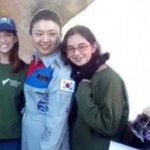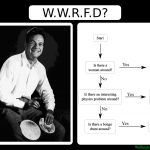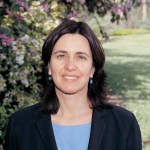women in science
Every once in a while, I'm happy to use this blog to throw my support behind a worthy project. And there's nothing like children's science books about women in science!
Check out the Kickstarter for Science Wide Open: Children's Books about Women in Science, and consider joining me in helping this amazing project come to fruition.
Science Wide Open: Children's Books about Women in Science
When children ask questions, their whole world becomes their experiment
Kids ask a LOT of questions. The inquisitive star of Science Wide Open is no different! Her questions about how the world works guide…
Is this science writer jazzed that ninth-grade girls from a religious girls’ school in Jerusalem won a space/science contest? You bet your sweet solar-powered spacelab she is! It is not just that these girls beat out a lot of other classes (over 400), or that they break more than one stereotype. They also came up with a pretty clever idea for studying the Sun: Send a spacecraft to scatter assorted nanolabs all over an asteroid that is about to pass close to the Earth on its way to the Sun. The contest is held every year in memory of Israeli astronaut Ilan Ramon, who went down with the crew of…
My library is hosting a Ada Lovelace Day event tomorrow (ok, a little late...). Continuing in a tradition of having Women in Science Wikipedia Edit-a-thons, we're hosting our own Wikipedia Women in Science Edit-a-thon!
I've been doing a fair bit of reading over the last couple of years about Wikipedia culture and especially how it relates to the under-representation of women both as editors and as subjects of articles. So I thought I'd share some of my readings here with all of you.
Of course, this list is in no way comprehensive or complete. I welcome suggestions for further readings in the…
Sydney Padua's The Thrilling Adventures of Lovelace and Babbage is one of the most flat-out entertaining books I have read in a very long time.
You should buy this book. Your library should buy this book. Buy a copy of this book for all your friends.
What's all the fuss?
TTAoLaB is a graphic novelization of the lives of Ada Lovelace and Charles Babbage, those wacky pioneers of computers and programming. But TTAoLaB isn't really just a novelization of their lives -- really only the first chapter or so pretends at any kind of historical accuracy. What it is is an imagineering of what their…
“Inclusion bodies – those clumps of protein that are found in the brain cells of Alzheimer’s patients – are, sadly, a product of aging,” says Dr. Maya Schuldiner. “They can form naturally in practically all cells, but when these cells get old, the mechanism for clearing them away starts to fail.”
That is not great news for those of us who are already seeing signs of incipient dementia every time we forget a name or misplace our keys. But of course there is good news too. Schuldiner has discovered a “detergent” that cells make to wash away those nasty protein clumps. And she believes that, in…
Here are some more unsung heroes of research: scanners (the human kind). In the 1950s, Donald Glaser invented the bubble chamber – a way to track infinitesimally small quantum particles as they winked in and out of existence. The idea – which may or may not have been tested in beer – was to create a large chamber of liquid under pressure next to a particle accelerator. As the beams hit their target, producing sprays of new types of short-lived particles, these energetic particles would leave tracks of bubbles in the liquid (usually hydrogen). Everything was caught on arrays of special high-…
Yesterday's post was frustrating. However, if anything good came out of it, it was some sharing of stories and mutual affirmations on the Twitters that yes, this happens to women all too frequently; yes, it's obnoxious; and that hopefully some people viewing it thought about their own internalized biases, and how those may reflect in behavior toward women. I'm reminded at times like these how important social media networks have been to me, both in introducing me to new people (I've already found many new scientists to follow because of this) and in having an outlet to discuss and commiserate…
While I loved Jeanne Garbarino's recent post, "Want to promote women in STEM? Leave home life out of the discussion", and agree with probably 90% of it, I think it unfortunately goes from one extreme to another with some of her recommendations.
Garbarino notes several reasons why she thinks it's counter-productive to discuss home life issues when trying to promote women in STEM careers: 1) it is rare that home life situations for men in STEM are discussed; 2) not everyone shares the same home life experiences or goals; 3) it doesn’t move the conversation forward. Very true for 1 and 2 (though…
"Bad men need nothing more to compass their ends, than that good men should look on and do nothing." -John Stuart Mill
No one becomes a master overnight, and practically no one does it without the outside help and support of not just a mentor, but of a number of peers, advisors and other allies along the way. At least, that was my story.
Image credit: University of Baltimore.
I remember being an undergraduate. I remember the combined struggles of rigorous academics, self-confidence crises, trying to figure myself out as a person, and trying to make friends and forge relationships…
There are two kinds of children's books: those that are aimed primarily at the kids themselves and those that are aimed at the adults that actually shell out the cash to pay for the books. There's certainly a lot of overlap -- books that kids love but that also catch the eyes, hearts & minds and wallets of the adults doing the shopping. But wander the aisles of your local bookstore and you'll see what I mean. Often beautifully illustrated, with a sophisticated artistic touch and a mature and serious topic, you can tell the books that are aimed at the parents and uncles and cousins and…
Prof. Shafi Goldwasser, who is at both the Weizmann Institute and MIT, will receive the 2012 A.M. Turing Award, together with Prof. Silvio Micali of MIT. Goldwasser is only the third woman to receive the Award since its inception in 1966, and she is the third faculty member of the Weizmann Institute to receive what is considered to be the “Nobel Prize in computing.”
Goldwasser and Micali’s work in the 1980s laid the foundations of modern cryptography – the science that, among other things, keeps your electronic transactions secure.
The basis of their work is a series of riffs on the…
Happy International Women's Day. In the midst of today's hand wringing about women in science, here's some good news: The Weizmann Institute has just been awarded a prize by the City of Barcelona for its efforts to promote women in science. Above: Barcelona Civil Rights councilor Francina Vila i Valls presents the award to the Institute's Dr. Karina Yaniv.
The centerpiece of this effort is the Israel National Postdoctoral Program for Women in Science, which gives grants, on top of the postdoctoral scholarships these women receive, specifically to enable them to move their families abroad…
Hey women scientists, does U.S. Swim Coach McKeever's story sound familiar? Don’t Call Her a Pioneer
Love this story
Pinnacle for U.S. Swim Coach McKeever, but Don’t Call Her a Pioneer - NYTimes.com.
Many women scientists could tell a similar one, I think.
I was so pleased to have a chance to take part in the Women in Science Symposium at Cornell April 2-3.
Thanks to the Cornell faculty and students that put together this wonderful event. For those that could not attend, read the graduate student interviews with the speakers here.
Dr. Mary Power is director of the Angelo Coast Reserve, leader in scientific societies, mentor to many successful students, and as an influential figure in several environmental policy debates.
Dr. Sharon Long is member of National Academy of Sciences and served as science advisor to President Obama during his…
I am so looking forward to the talks tomorrow.
Linda Buck! Sharon Long! Mary-Claire King! and more...
Frontiers in the Life Sciences: a Symposium Celebrating Excellence
I am so looking forward to the talks tomorrow.
Linda Buck! Sharon Long! Mary-Claire King! and more...
Frontiers in the Life Sciences: a Symposium Celebrating Excellence
Bacteria can talk. Yes. Talk. These unicellular, primitive creatures have their own language. They secret chemical words to their environment, where their neighbors can listen, comprehend and react to those messages.
This bacterial communication is called quorum sensing (QS).
Although the first discoveries in the field of bacterial communication where made more than 40 years ago in the marine bacterium Vibrio fisheri (1), they simply did not have the quorum to be heard. Until Bonnie Bassler came along.
Thanks to Bonnie and her colleagues, today, microbiology courses throughout the world…
The New Earth Archive is a resource network of powerful, inspiring books on climate change, sustainability, social justice, and human nature.The students ask you to vote for up to 15 of your favorite books.
So pleased, Tomorrow's Table made the list!
http://www.surveygizmo.com/s3/808430/neweartharchive-ballot
Whoie Earth Discipline, by Stewart Brand is also on the list and so are many other great books.
Please spread the word. Thanks for your support.
The New Earth Archive was developed by students at the New Jersey Institute of Technology, and supported by Paul Hawken and other leading…
Applause for Plant Physiologist Helen Stafford who left the Reed College Biology Department $1M. As a woman scientist in the 1950s, Stafford was ineligible for many jobs. Reed College, not deterred by her sex, offered her a position. She went on to establish a successful career and inspired many young scientists. Here is a short story of how she influenced my career.
The windowless room, dank an dark, was not an obvious place for inspiration. I took notes, wondering if I would be able to glean anything meaningful from Professor Helen Stafford's (1922-2011) meandering lecture. I was skeptical…
Jonathan Eisen, scientist and blogger extraordinaire has established a science writing series called "Story behind the paper". The idea is for authors who have recently published Open Access papers to tell the story behind the paper: what sorts of experiences and experiments led up to the new discovery and how we navigated through the publication process. Several years ago Jonathan patiently explained to me what a blog was and got me started with science blogging. He recently kindly extended an invitation to write story about our discovery of a new communication code in disease causing…




